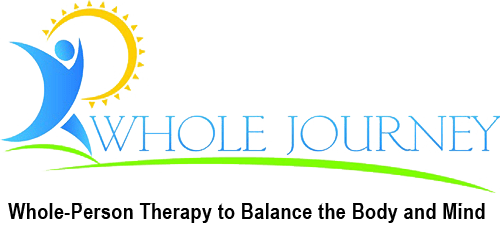Grief Counseling
“You will lose someone you can’t live without, and your heart will be badly broken, and the bad news is that you never completely get over the loss of your beloved. But this is also the good news. They live forever in your broken heart that doesn’t seal back up. And you come through. It’s like having a broken leg that never heals perfectly—that still hurts when the weather gets cold, but you learn to dance with the limp.”
― Anne Lamott
Loss is a feature of living that all of us experience: throughout life, we confront the loss of relationships, the loss of loved ones, the loss of hopes and dreams, and the loss of youth or function. Grief is the response to loss, and it can take many forms:
Types of Grief and Loss
Anticipatory grief

Anticipatory grief is a type of grief we experience before a loss occurs, such as when someone we love is diagnosed with a terminal illness. The human brain is wired to think forward, so we often consider how we will think, feel, and cope when someone we care about dies – and we can begin to grieve that loss well in advance of when it occurs.
Disenfranchised grief
Disenfranchised grief is the grief that results from a loss that isn’t openly or socially accepted. Grief is disenfranchised when we feel that others either don’t understand our loss or somehow minimize it, so we aren’t able to receive the support we need. Some examples of disenfranchised grief may include the grief resulting from the loss of an animal, the loss of a marriage, or the loss of a child through miscarriage or abortion.
Secondary grief
Secondary grief is the grief that compounds a primary loss. When we lose an important figure in our lives, their loss might also trigger grief over a loss of faith, financial security, identity, support systems, or dreams for the future that we associate with that important figure. Grief is rarely limited to just the loved one we dearly miss.
Complicated grief
Complicated grief is a grief response that lingers and interferes with day to day life. This may be marked by intense and prolonged feelings of guilt or self-blame, difficulty understanding and accepting death, extreme focus on – or avoidance of – reminders of the loved one, and the inability to remember or think about positive memories. People experiencing complicated grief may find they are having trouble adjusting to the loss, isolating themselves, and/or wishing they had died with their loved one. This type of grief reaction is not uncommon when the loss is sudden/unexpected, traumatic (such as by accident or suicide), or accompanied by other significant life stressors.
Ambiguous loss
Ambiguous loss encompasses the feelings of uncertainty when someone or something is missing. This type of loss is common when a loved one is chronically absent (through deployment or other circumstances), when someone is physically present but emotionally/cognitively absent (such as in dementia), or when someone disappears and we don’t know where or how they are.
Your loss is worth honoring
Regardless of whether you are struggling with the loss of a person, the loss of a pet, or the loss of another deeply important part of your life, we are here. Whole Journey Wellness can support you in your grief and help you move toward understanding, healing, and restoration.
__________

Signs & Symptoms of Grief:
• Shock and disbelief
• Feeling numb or empty
• Denial of the loss
• Sadness
• Loneliness
• Guilt
• Regret
• Shame
• Anger
• Resentment
• Anxiety
• Helplessness
• Fear
Other signs include physical symptoms like fatigue, nausea, sickness, weight loss or gain, aches and pains, night sweats, heart palpitations, and nausea
Common reasons people begin counseling for grief and loss in Virginia
People come to counseling for various reasons. Loss shows up in many forms, but all impact us in different ways and individuals should be given space to grief and process. Here are common reasons people begin counseling grief in Virginia.
• Parent Loss
• Suicide Loss
• Spouse / Partner Loss
• Loss of Parent
• Miscarriage & Infertility
• Pet Loss
• Loss of Friend
• Workplace/Colleague Loss
• Sudden Loss
• Chronic Illness Related Loss
• Survivor’s Guilt
• COVID-19 Pandemic-Related Loss
Grief Counseling in Virginia and Therapy for Children and Families in North Carolina
Saying goodbye can be one of the most difficult experiences we have as humans. A loss of a loved one can shake a family to its core. Our grief counselors can assist children and families with grieving. Our counselors will create a safe space for children to process their questions, create ways to honor the loss in their own way, and learn how to move forward. Finally, our grief counselors can assist families by helping them to process their emotions in healthy ways. Teach family members how to respect everyone’s grieving process to heal.
Grief and Loss Therapy and Counseling for Pet Loss
The loss of your four-legged, furry loved one can be debilitating for many adults, children, and families. Unfortunately, many feel shame as they cope with the loss of their pets. One of the common misconceptions is how much affection and companionship we experience in the relationships we build with our pets. For many, our pets become living examples of unconditional love throughout the years, which can make their deaths significantly impactful. We understand how your pet has become a family member in many ways throughout your time together and will support you in your grief.
Our Approach to Grief and Loss Counseling

Our therapists typically support clients by processing grief in a few ways. Talking about the person or loved one lost can allow you to process your feelings in a safe space. If you are struggling with complicated feelings in addition to your grief, such as loss, our counselors can support you. Our grief and loss counselors can also help you understand the difference between grief and trauma. If you are struggling with getting an image out of your mind or experiencing symptoms similar to those of a flashback, this experience might indicate that you are experiencing trauma associated with your grief that can impact your grief process. If this is the case, a skilled and empathetic counselor can assist you. Counseling for grief and loss in Charlotte, NC, Chesapeake, VA, and Richmond, VA, and online throughout Virginia and North Carolina may include an initial evaluation to figure out where you are in the grief process.
Counseling for Grief & Loss Can Help
Grief can make you feel like there is no reason or motivation to move forward. Within our grief and counseling framework, we can guide you in understanding how the five stages of grief: denial, anger, bargaining, depression, and acceptance; impact your ability to grieve. We understand that it can be difficult and painful to reach out and ask for mental health support, but it can be one of the best investments you can make. Regardless of whether you are struggling with the loss of a person, the loss of a pet, or the loss of another deeply important part of your life, Whole Journey can support you in your grief and help you move toward understanding, healing, and restoration.
Begin Counseling in Virginia and North Carolina

If you’re having a hard time coping with your feelings and memories following a loss, consider grief counseling. Our Charlotte, NC, Chesapeake, VA, Richmond, VA, and North Carolina-based offices have caring grief and loss therapists/counselors who specialize in treatment. To start your therapeutic journey, follow these simple steps:
- Contact Whole Journey
- Meet with one of our grief and loss therapists.
- Start recovering one step at a time.
Other Mental Health Services at Whole Journey
Grief counseling in Virginia and North Carolina isn’t the only service we offer in Charlotte, NC, Chesapeake, VA, and Richmond, VA. Other mental health services Whole Journey provides include anxiety treatment, couples counseling, walk and talk therapy, PTSD treatment and trauma therapy, and child counseling and wellness. We also help with women’s issues, men’s issues, medical illness, cancer counseling, and counseling for life transitions, and kids and family. Finally, we work through counseling for people of color, grief and loss, work and career, counseling for millennials, and group workshops and classes.



